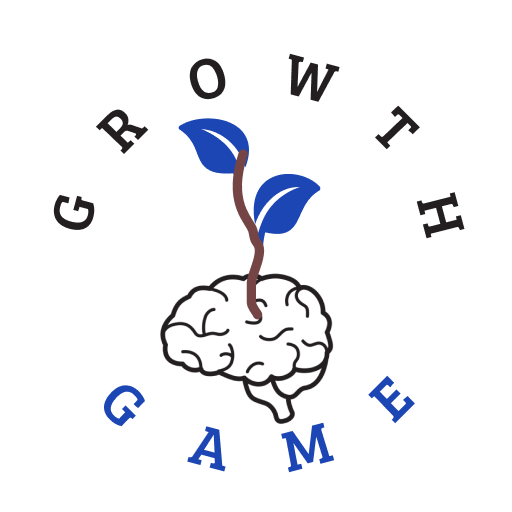Growth game is a set of activities that focuses on the support of developing the growth mindset of teenagers in order to change their self-beliefs and self-reflection about their own personal abilities, competencies and characteristics. Several research has provided important data that supports the beneficial impact of growth mindset intervention in the achievement of academic success.
Since children with growth mindset tend to have a greater level of motivation, tend to pursue challenges, rather than giving up, internalization of growth mindset values may benefit especially underperforming students and thus can contribute to reduce social disparities.
Growth games developed under the Growth Game – Unlocking a well-being power-up Erasmus+ project, based on the growth mindset principles, are aimed to enable teenagers to fulfill their full potential and develop into happy, resilient adults.
Therefore several games were developed in order to help recognise new thinking patterns and thus strengthening teenagers self-beliefs and self-competence in their abilities and potential to grow.
Assessing the rate of change emerged by the growth game gives important feedback to the partners and trainers contributing to the development of the serious games providing information on their effectiveness and thus highlighting possible paths for a better effectiveness.
Several assessment methods and instruments are largely available. Some of them were developed to assess specific aspects of the process of internalizing growth mindset principles. These may vary based on the methodology, tools used, assessment environment etc.
To assess the impact Growth Game intervention, questionnaires and observation were chosen> Questionnaires depict several announcements, statements representing growth mindset principles and teenagers have the option to choose the level they agree with, based on a 4- point Lickert scale. This method of evaluation should give information on the fixed vs growth mindset of teenagers before engaging in the Growth Game.
Idyllically this assessment should be repeated after a certain time-period or set of implemented games giving the opportunity for teenagers to internalize growth mindset values and fostering the recognition of their potential for change, for constant grow of their abilities and competencies, thus inducing change in their self-perception patterns.
Changing mindsets of students, teenagers, developing new assessment and reporting tools to support such change should be included educational agenda as well. A wider appreciation of the ways to provide experiences of success, evaluation focusing on progresses rather than fails could help build healthy mindsets and would certainly support the growth of learners.
